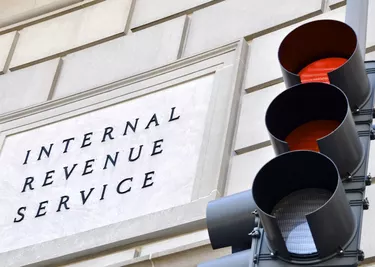
After a person dies, taxes still must be filed for that person the tax year of the death. Usually the executor of the estate handles these financial affairs. An executor is the person named to handle the decedent's financial affairs as listed in the will, including burial arrangements, the distribution of assets to heirs and the payment of bills. Included within the bill payments are any funds due to the Internal Revenue Service. The information contained on the 1099-C form determines what steps the executor needs to take.
Cancellation of Debt
Video of the Day
The IRS 1099-C form called "Cancellation of Debt," is used when a lender cancels or forgives a debt owed. Because the person who owed the money no longer has to pay this debt, the IRS considers amounts over $600 on this form as taxable income. The IRS requires the decedent's estate to pay taxes on the amount of the canceled debt reported with 1099-C. Lenders must file this form with the IRS and give a copy to debtors to include with their taxes.
Video of the Day
Filing Taxes
For a decedent, the 1099-C income is included on the decedent's tax return for the tax year it was issued. It is the responsibility of the executor to see to it that the decedent's tax returns are filed, including the 1099-C income. If the decedent died without a will, or the person named in the will is unable or unwilling to act as executor, the probate court will appoint an administrator to handle the decedent's financial affairs.
IRS Exceptions
Under the Mortgage Forgiveness Debt Relief Act, mortgage debt forgiven as a result of foreclosure is not taxable to the homeowner through the 2013 tax year up to $1 million for singles and $2 million for married couples filing jointly. Other exceptions include real property business debt, student loan debt forgiven for working in a public service position for a specified period of time, debt discharged in bankruptcy, debts canceled while the person was insolvent, qualified farm debt and debt forgiven by a relative or family member. But if debt forgiven by a family member is more than $13,000, the Internal Revenue Service still requires the recipient to pay gift tax on it.
Type of Debt
The type of debt reported on the 1099-C form determines if the estate of the decedent will owe taxes on that sum. If the decedent qualifies for an exception, the executor must submit IRS form 982, "Reduction of Tax Attributes Due to Discharge of Indebtedness" along with the decedent's income taxes. This form tells the IRS that the sum reported on the 1099-C does not qualify as income. If a doubt exists as to whether the decedent must pay taxes on 1099-C income, consult with a tax professional or tax lawyer for guidance.